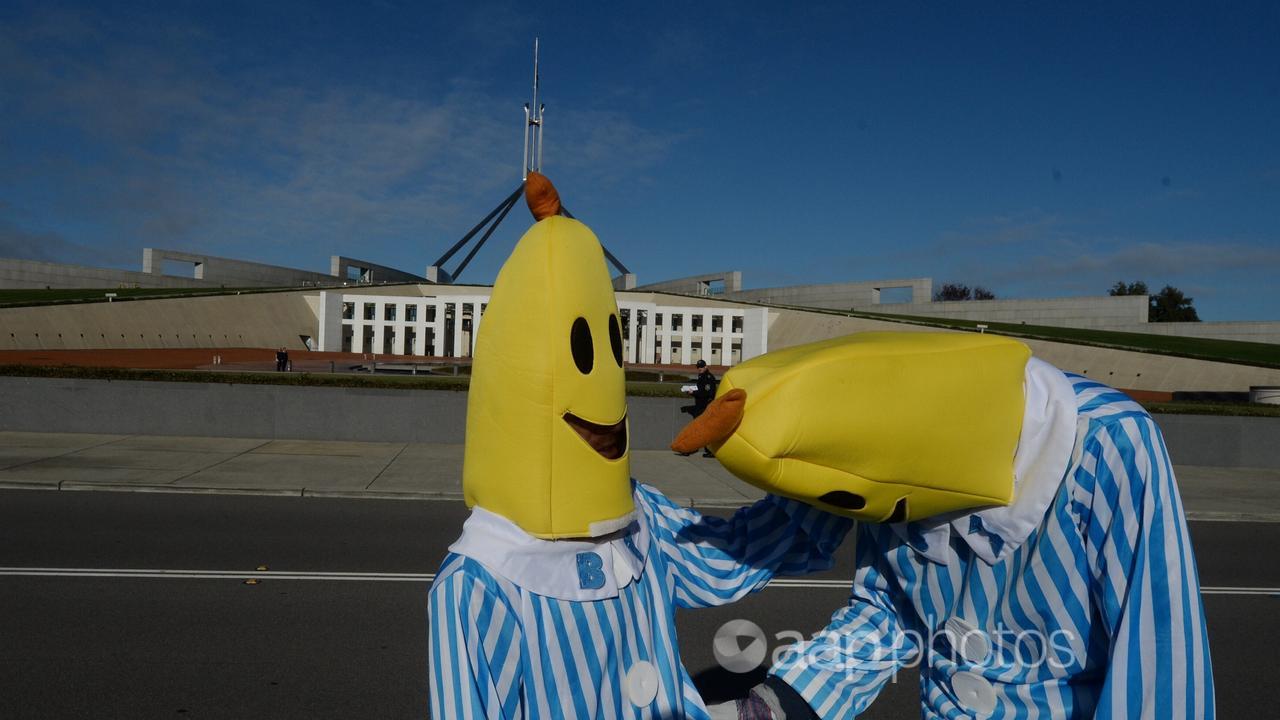A Facebook user has claimed to have uncovered the real motivation behind enshrining the voice to parliament in the constitution.
It is being claimed Australia cannot become a republic until Aboriginal and Torres Strait Islander people are included in the nation’s founding document.
This is false. Experts told AAP FactCheck the claim is nonsensical and the inclusion of Indigenous people in the constitution is not a prerequisite to becoming a republic.
The post (screenshot here) from April 27, 2023, makes a series of claims and includes a supposed quote from former federal Labor leader and deputy prime minister Kim Beazley.
It quotes Mr Beazley as telling parliament in 1990: “The United Nations has given the Federal Government a mandate of ownership for housing, property, farms and businesses to government control once the Republic has been proclaimed.”

The author of the post then adds: “And what is preventing Australia becoming a republic? The fact that Aboriginal and Torres Strait Islanders are not currently included in the Constitution and are still deemed to be the original owners of the land.”
He suggests this is therefore the motivation behind the upcoming referendum.
Similar claims are being made in other posts, as seen here, here, here, here and here, with many using the original post as their source.
The posts include a number of falsehoods.
Firstly, the suggestion the United Nation (UN) has a mandate over domestic matters in Australia or control over housing, property or businesses is false.
The UN is an intergovernmental organisation of which Australia is a member nation. However, its function and authority are clearly set out and it does not possess the powers as suggested in the post.

Mr Beazley told AAP FactCheck the quote attributed to him is fabricated, labelling it bizarre.
“I have never said anything like that,” he said.
“Bizarre notion UN controls anything we do, let alone ordinary life processes.”
There are no mentions of anything approaching the quote in the federal parliament’s Hansard records.
While the quote’s origins are unknown, the earliest mention AAP FactCheck could find was from an online petition, dated February 2014.
Regardless, experts told AAP FactCheck Australia can become a republic without any recognition or inclusion of Indigenous people in the constitution.
Adrienne Stone, a laureate professor at Melbourne Law School who specialises in constitutional law, said the claim “makes no sense at all”.
“Australia can become a republic irrespective of whether we amend the Constitution to include the ‘Voice’ or, for that matter, any other recognition of Aboriginal and Torres Strait Islander peoples,” Professor Stone said.

Gabrielle Appleby, a law professor at the UNSW Sydney, said section 128 of the constitution leaves the question of what amendments and when to the parliament and the Australian people at a referendum.
“The quote doesn’t even really make sense,” Prof Appleby added.
A referendum on Australia becoming a republic was held in 1999. A second question was also asked at that referendum: whether the preamble to the constitution should be amended to include reference to Indigenous Australians being the nation’s first people.
However, the republic vote was not contingent on the preamble question being passed. In the end, neither question was passed.
RMIT FactLab also checked a similar claim.
The Verdict
The claim Australia cannot become a republic until Aboriginal and Torres Strait Islander people are included in the constitution is false.
Experts told AAP FactCheck the inclusion of Indigenous people in the constitution is not a prerequisite to becoming a republic.
The quote around which the claim is based is also false.
False – The claim is inaccurate.
AAP FactCheck is an accredited member of the International Fact-Checking Network. To keep up with our latest fact checks, follow us on Facebook, Twitter and Instagram.
All information, text and images included on the AAP Websites is for personal use only and may not be re-written, copied, re-sold or re-distributed, framed, linked, shared onto social media or otherwise used whether for compensation of any kind or not, unless you have the prior written permission of AAP. For more information, please refer to our standard terms and conditions.


















